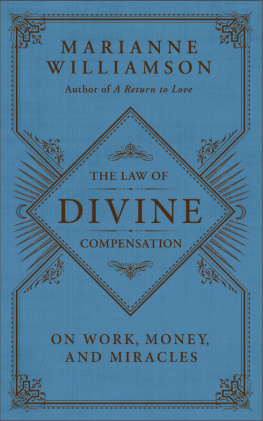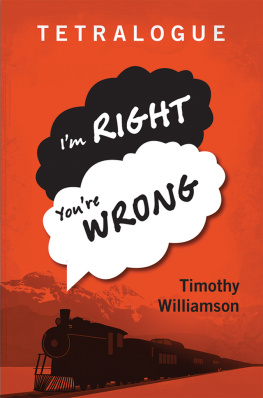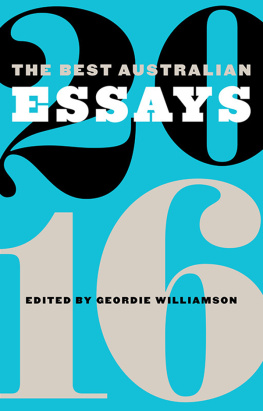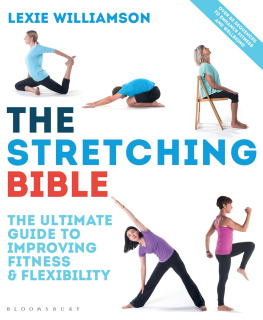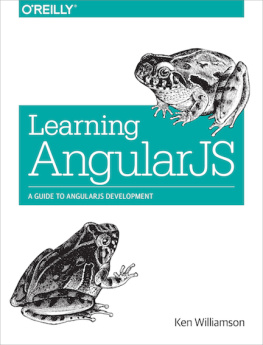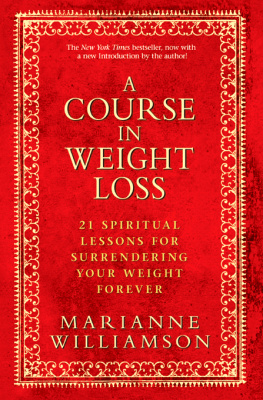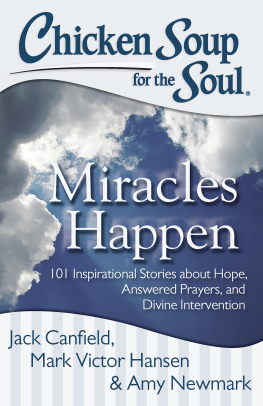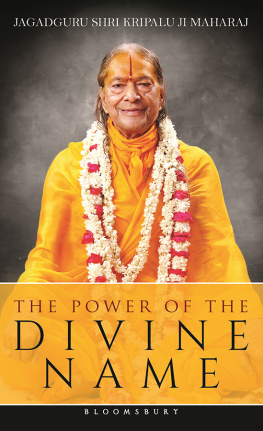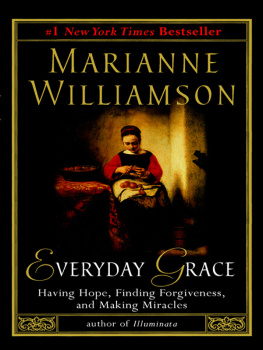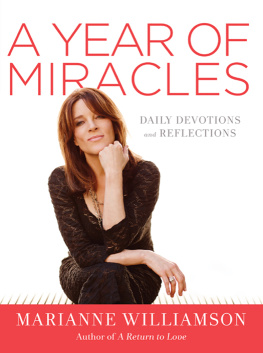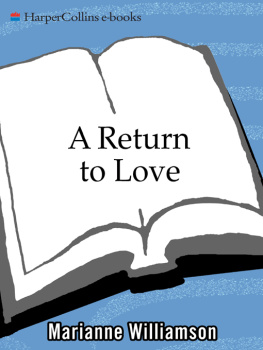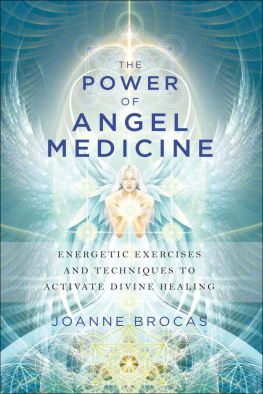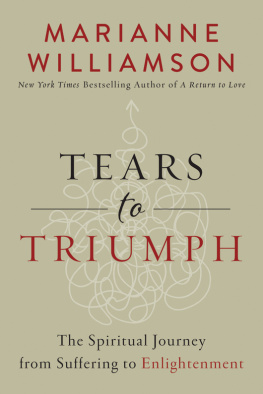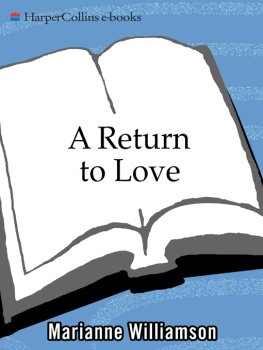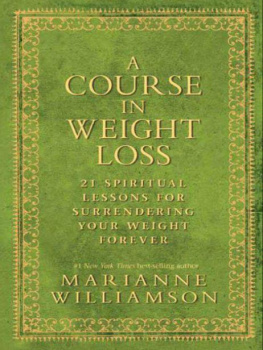
The Law of
Divine Compensation
On Work, Money, and Miracles
Marianne Williamson

The most important decision we make is whether we believe we live in a friendly or a hostile universe.
A LBERT E INSTEIN
Contents
F ew areas of our thinking, or our circumstances, can be more stressful than work and money. The late actress Sophie Tucker is credited with having said, Ive been rich and Ive been poor, and believe me, rich is better. Most people would agree.
At a time when the institutional processes normally counted on to support our financial good have gone south, if not completely haywire, many people are looking for alternative routes to economic security. We want to work, but cant find work. We want to invest, but dont feel we can do so safely. We want to have enough money in the bank, and find ourselves terrified at the thought that we might not.
It is often at the moment when our way isnt working anymore that we open our minds to consider something new. Finance is just one of many areas where an increasingly obsolete, materially based worldview is proving inadequate to the challenges of the times in which we live, and more and more people are finding practical wisdom in spiritual understanding. Dogmas and doctrinesboth religious and economicare being left behind as a deeper realization of the power of consciousness and its primacy in the creation of human affairs becomes a more popular avenue to a happy life.
Spiritual truth is expressed in many forms, both religious and secular. I have been a student of a set of books called A Course in Miracles a self-study program of psychotherapy based on universal spiritual themesfor thirty-five years. As a teacher of the principles of the Course, Ive had the opportunity to witness as well as experience their practical applicability. The crux of the Course, which is not a religion and has no dogma or doctrine, is the relinquishment of fear and the acceptance of love into our hearts to replace it. Ive seen miraculous transformations occur when we change the nature of our thinking from fear and limitation to faith and love.
From a metaphysical perspective, every experience begins with a thought, and our experience changes when we change the thought. If we have a problem in any areawhether relationships, health, money, or anything elsethe first place to look for a solution is in the nature of our thinking. This applies to money no more and no less than it applies to anything else.
This book is a guide to spiritual principles that pave the way to material abundance. These principles are based on my understanding of A Course in Miracles. Theory alone does not change our lives, but theory activated by mental shifts and behavioral follow-up becomes nothing short of miraculous help in even the most troubled times.
T HE MAIN PRINCIPLE of A Course in Miracles, and key to the peace of God, is this: Nothing real can be threatened. Nothing unreal exists. Love is the all-encompassing reality of God and thus can have no opposite. The absence of love, which is fear, is mere illusion. Love is the only eternal truth, while fear is a hallucination of the mortal mind. Throughout this book, the fear-mind will be referred to as the ego.
Every thought is a cause that produces an effect. According to A Course in Miracles, every thought we think creates form on some level. If your mind is in a loving placeif your thoughts are of a high, divine vibrationyour experience will reflect that. If your mind is in a fearful placeif your thoughts are of a lower, dense vibrationyour experience will reflect that. The way to change the nature of your experience is to change the nature of your thoughts.
Seeking to solve a problem merely on the level of effect is not a true solution but only a temporary fix. Only when we address the level of causethe thoughts that caused the original deviation from lovedo we produce miraculous and fundamental results. By remembering what is real while in the presence of the unreal, we miraculously transform a problem on the level of its cause. A miracle is a shift in perception from fear to lovefrom a belief in what is not real, to faith in that which is. That shift in perception changes everything.
In our ability to think about something differently lies the power to make it different. Miraculous thinking does not represent a state of denial, at least not in the traditional sense. It doesnt represent the magical thinking of simply looking away from something horrible and pretending it doesnt exist. If anything, it is a state of positive denial: looking at something and knowing that since only love is ultimately real, nothing else has ultimate effect. The miracle-worker does not look away from the illusions of the mortal world but rather looks through them, thus invoking a world that lies beyond. This book is not about denying our economic problems; its about transcending them. Its about realizing that illusionsno matter how entrenched they might be within the three-dimensional worldcannot stand in the presence of love.
Through the authority of loving thought, we are given the power to turn any situation that is not love back into love, starting with thinking about it differently. We do this by identifying our own lovelessness and being willing to let it go. Thinking this waywhich is sometimes easy, sometimes notis the mental habit of the miracle-minded.
God has introduced into our minds an Internal Teacher, authorized to help us cross the bridge from fear to love when we find it difficult to do so by ourselves. The Internal Teacher is called by different names, from the Comforter, to Jesus, to the Holy Spirit. Whatever name we use, it cannot be called on in vain. Miracles are a divine intercession from a thought system beyond our own, bringing inner light into a darkened world.
And miracles are summoned by conviction. Conviction can be seen as an attitudinal muscle that gives us strength to see beyond appearances and invoke the possibilities that lie there. With Gods help, our own particular worldly veil of illusionwhether it takes the form of bankruptcy, recession, or any other form of fearis lifted, and we can see beyond it. No matter what our problem, or its form or size, an infinite field of miraculous possibility awaits our open-mindedness and love. Miracles occur naturally as expressions of love, according to A Course in Miracles. This book is about money, miracles, and love.
S OME PEOPLE MIGHT read this book and say, Oh yeah? Well what about starving children in Africa? Are they poor because their consciousness is unaligned with love? Id like to take this opportunity to respond to that.
Starving children in Africa are not poor because their consciousness is unaligned with love; theyre poor because ours is. A billion people on earth live in deep povertythat is, on less than a dollar and twenty-five cents a day. A billion more live on less than two dollars a day. Yet this is not an exception to the rule that love casts out fear. Quite the opposite, it is a collective lovelessness on the part of the advanced nations of the world that allows us to accept the reality of deep poverty, thus deflecting a miraculous solution. When we collectively make love our bottom linemaking humanitarian values rather than short-term economics the organizing principle of human civilizationthen the situation will indeed miraculously change. According to economist Jeffrey Sachs, one hundred billion dollars (one-seventh of the annual military defense budget of the United States) could eradicate deep poverty within ten years.
Next page
